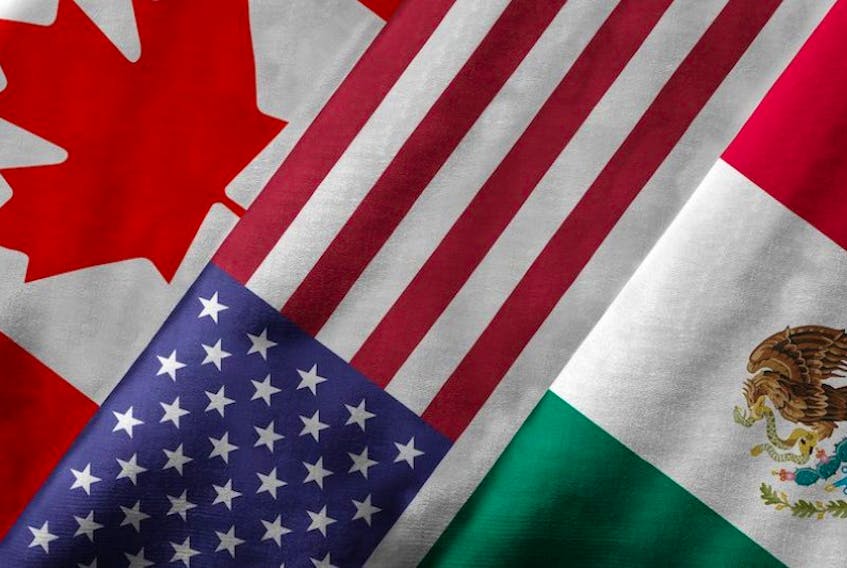That’s what New England governors and Eastern Canadian premiers had to grapple with this week when they sat down for their annual conference in Charlottetown.
The elephant in the room, of course, is U.S. President Donald Trump, and a key issue facing premiers and governors is the current renegotiation of the North American Free Trade Agreement (NAFTA).
Governors and premiers are acutely aware of the immense value of trade between the northeastern states and Atlantic Canada and Quebec, and of the hundreds of thousands of jobs dependent on their historic, intertwined economies. Each side was preaching to the converted — NAFTA has worked well and must remain.
Trump has long complained that NAFTA is a bad deal for the U.S. and that the other partners — particularly Mexico — have benefited to the detriment of U.S. jobs and trade balance. The president might call NAFTA one of the worst trade deals in history, but he’s getting few takers in New England and other states or from members of Congress.
Canada had largely escaped scrutiny, but just as premiers and governors were about to sit down in Charlottetown, Trump started tweeting to complain that Canada and Mexico were being “very difficult” in NAFTA talks, and hinted that he might just terminate the deal.
His comments were meant to rattle Canadian and Mexican negotiators as talks now shift to Mexico from Washington. They were likely also made to shake up governors and premiers gathering in P.E.I.
Most observers and political leaders didn’t appear to take Trump’s words too seriously, though. They agree that NAFTA needs to be renegotiated but only so as to modernize it for the 21st century and make it better for all sides. Trump talks tough, but those kinds of comments have become predictable and tiresome.
A key Trump ally assured Charlottetown delegates that they have nothing to fear. Maine Gov. Paul LePage said he’s confident that any issues with NAFTA can be fixed and that Canada shouldn’t read too much into what Trump says.
“He really truly believes in having free trade and good, honest trade between the two countries,” LePage said of his president.
So the consensus in Charlottetown was to take the president’s soaring rhetoric with a large dose of skepticism and let common sense prevail.
To that end, the first resolution passed by governors and premiers touted the importance of cross-border trade and commerce to their respective economies.
They seem to be looking forward to a mutually beneficial future under NAFTA. The president should take a lesson from Charlottetown and do the same.









